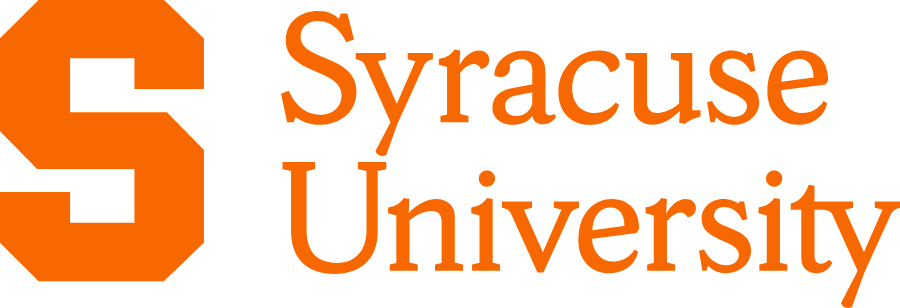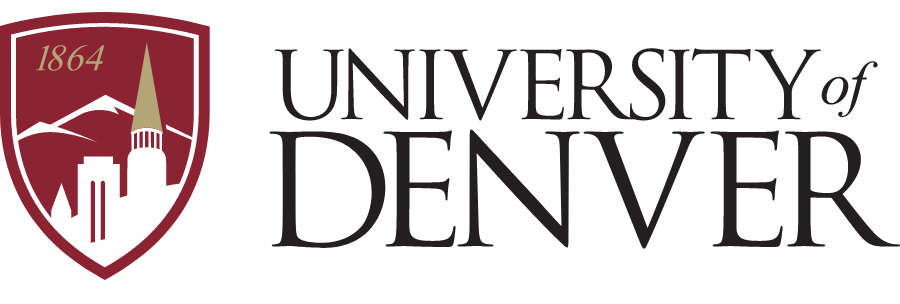All across the United States of America, libraries of all types are serving the nation’s many citizens. Whether they are assisting young children and their caregivers, teenagers, adults, or seniors, librarians strive to provide top notch quality information services to all their patrons.
In Massachusetts, prospective librarians must adhere to specific sets of standards and requirements before they can officially serve in librarian roles within the state’s public, K-12 school, and academic libraries. Like other states, Massachusetts holds their librarians to these standards and requirements to ensure all librarians, no matter where they are or in what type of library, are adequately prepared to provide top quality information services to library visitors of all types.
While some of the steps to become a public service, K-12 school, or academic librarian are comparable to other states, some of the requirements are unique to the state of Massachusetts. Understanding the steps toward librarianship fully ensures a prospective librarian completes everything necessary for them to become a full-fledged librarian in the library type of their choice.
ADVERTISEMENT
Syracuse University
Master of Science in Library and Information Science Online
Syracuse University offers an online MS in Library and Information Science. The program can be completed in 18 months and includes the option to specialize in School Media or customize the program to align with your professional goals. No GRE is required.*
University of Denver
Master of Library and Information Science Online
University of Denver’s Morgridge College of Education offers an online, ALA-accredited Master of Library and Information Science program. Learn from practitioners and gain the service-based skills needed to connect communities with information in the digital age. No GRE is required.*
St. John’s University
Online Master of Science in Library and Information Science
Gain the advanced expertise that information specialist positions require with the online M.S. in Library and Information Science program from St. John’s University. Achieve your career goal by selecting from one of the following specializations:
Arizona State University
M.Ed in Learning Design and Technologies
Create literacy programs and curricula that fully incorporate digital technology and include themes of social justice.
How to Become a Public Service Librarian in Massachusetts
In 2023, The Massachusetts Board of Library Commissioners (MBLC) reported a whopping 25,991,063 visitors to the state’s three hundred and sixty-six public library buildings. That is a lot of library visitors in the course of a single year!
To ensure Massachusetts’ public libraries are staffed with prepared, capable, and knowledgeable librarians, the MBLC set forth specific requirements for their librarians (and other library workers) to meet in order to gain employment in the states various public library facilities.
To become eligible for public librarian positions in Massachusetts, a prospective librarian would need to complete the following requirements:
- Complete a bachelor of arts degree in any subject or field. Some people may choose to pursue library and information science studies during their undergraduate years, but this typically is not a requirement for most master’s-level degree programs.
- Complete a Master of Library and Information Science (MLIS) degree. Many public library systems in Massachusetts prefer their librarian candidates to hold their MLIS degrees from American Library Association (ALA)-accredited programs. However, this is not always a firm requirement – it may be simply preferred or not mentioned at all in job descriptions. Before applying to an MLIS program, it is best to research options and see what different library systems prefer in their candidates.
- Earn and apply for a proper certification from the MBLC. The MBLC offers a variety of certifications for different positions within Massachusetts libraries, and there are certification levels reflective of librarian-level positions.
- The certifications are broken into two main categories: Professional and Sub-professional.
- Professional certifications are granted to those who have completed one or both of the following:
- Graduation from a library school accredited by the American Library Association or the passing of an examination which, with due consideration of education, professional training, practical experience and demonstrated ability, shall satisfy the Board that the candidate has the qualifications required for the satisfactory practice of library work.
- The holding of an unexpired certificate issued by the proper authority in any state other than this Commonwealth in which the requirements for certification are satisfactory to the Board.
- Sub-professional certifications are granted to those who have completed the following:
- Graduated with an associate’s degree from an institution whose two-year program meets the ALA criteria for Programs to prepare Library/Media Technical Assistants (this gives immediate qualification for a sub-professional certificate).
- Performed satisfactorily for six months in the various library tasks relating to the acquisition and circulation of books.
- Received written verification from a head librarian or official representative of the local library that validates the applicant’s employment and satisfactory performance.
- Professional certifications are granted to those who have completed one or both of the following:
- The certifications are broken into two main categories: Professional and Sub-professional.
How to Become a K-12 School Librarian in Massachusetts
K-12 school librarians perform a lot of different duties on their campuses. They are one of the few educator’s positions that have the ability to work with every single student and faculty member in the school, which often means they have lots of jobs and responsibilities in their roles. K-12 school librarians manage the school library, but they also teach, collaborate, serve on committees, perform community outreach, and much more!
The Massachusetts School Library Association lists the basic requirements to become a K-12 school librarian in the state:
- Earn a bachelor’s degree. Preferably, a K-12 school library candidate would have an undergraduate background in education. This would mean that they are likely already holding a valid teaching certificate. However, this isn’t totally necessary to become a K-12 school librarian in Massachusetts – prospective librarians don’t need to panic if their undergraduate degrees aren’t focused on education.
- Earn an MLIS degree from an ALA-accredited college or university program. In the MSLA standards, an ALA-accredited degree is listed as a requirement for licensure.
- When choosing the right MLIS program for K-12 school librarianship, a prospective librarian should also consider whether or not they will need to earn a teaching certification, too. If they still need their teaching certification, they can earn one alongside their MLIS. There are master’s programs designed to help prospective K-12 school librarians earn and meet these requirements as they complete their school library coursework.
- Complete the required competency review to earn a full endorsement for school library media in Massachusetts. This is one way that Massachusetts differs from other states’ K-12 school library requirements – rather than having prospective K-12 school librarians complete testing to earn full certification, they must instead complete what the state calls a “competency review” to ensure that all subject matter coverages have been met.
- Any individual can apply for the license at any time. The Massachusetts Department of Elementary and Secondary Education (DESE) will respond with specific information about missing areas of coverage which can guide the candidate in deciding whether they need to enroll in a complete advanced degree program or can take separate courses at accredited schools to meet them all.
Prospective K-12 school librarians can read more about educational licensure at the Massachusetts Teachers Association’s website.
ADVERTISEMENT
Syracuse University
Master of Science in Library and Information Science Online
Syracuse University offers an online MS in Library and Information Science. The program can be completed in 18 months and includes the option to specialize in School Media or customize the program to align with your professional goals. No GRE is required.*
University of Denver
Master of Library and Information Science Online
University of Denver’s Morgridge College of Education offers an online, ALA-accredited Master of Library and Information Science program. Learn from practitioners and gain the service-based skills needed to connect communities with information in the digital age. No GRE is required.*
St. John’s University
Online Master of Science in Library and Information Science
Gain the advanced expertise that information specialist positions require with the online M.S. in Library and Information Science program from St. John’s University. Achieve your career goal by selecting from one of the following specializations:
Arizona State University
M.Ed in Learning Design and Technologies
Create literacy programs and curricula that fully incorporate digital technology and include themes of social justice.
How to Become an Academic Librarian in Massachusetts
Academic librarians play crucial roles in the campus communities they serve. Whether the college is big or small, public or private, academic librarians are important for furthering research and knowledge with all academic departments. Whether they are assisting students with papers and projects or helping faculty find specific information needed for research, academic librarians are viewed as information authorities on campus.
To meet the demands of an academic library, prospective academic librarians wanting to work on a Massachusetts college or university campus must meet the following criteria:
- Earn a bachelor’s degree in any chosen field or subject. An undergraduate degree doesn’t necessarily need to be focused in library and information science in order to enter an MLIS program.
- Earn an MLIS degree. Many colleges and universities prefer their academic librarians to hold MLIS degrees from ALA-accredited schools; however, this is not always a firm requirement. It is best to check with different academic libraries and colleges to see what their hiring preferences are, as some are more flexible than others.
- Some academic library positions require candidates to also hold other degrees and certifications in specific fields unrelated to library science. This is because college and university libraries often have collections and subsections of their facilities dedicated to specific academic departments. For example, a college or university with a library especially designed to serve the campus’ linguistics department may want their academic librarians to also hold degrees in linguistics as well as an MLIS.
Other Helpful Links and Resources for Becoming a Librarian in Massachusetts
- The MLBC maintains a routinely updated job board showing all the different positions currently posted in libraries across the state. Prospective librarians can browse available job postings of all types, ranging from basic clerk positions all the way to library directors.
- The Massachusetts School Library Association (MSLA) also maintains a routinely updated job board featuring different types of school library positions open and available across the state. Besides the job board, the MSLA website also offers library students and current K-12 school library employees a wealth of valuable resources, including conference information, webinars, networking opportunities, discussion on current school library topics, and more.
- The Massachusetts Commonwealth Consortium of Libraries in Public Higher Education Institutions (MCCLPHEI) maintains a libguide chocked-full of good information for current and prospective academic librarians in Massachusetts. The group seeks to connect academic libraries and librarians together with the basic belief that working together makes them and their resources stronger.




